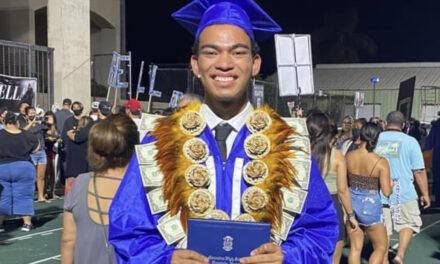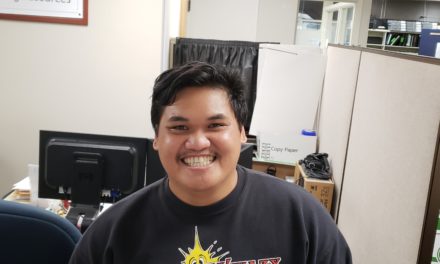On March 16, The New York Times published an opinion piece by Yale professor Meghan O’Rourke who said, “What we are witnessing is not just an attack on academia or a set of fiscal reforms. … It is an attack on the conditions that allow free thought to exist.” (Photo by Sarah Burchard)
By Sarah Burchard | Staff Writer
I go back and forth between wanting to stay up on political news and wanting to ignore it. Last month, reading the Sunday New York Times, I came across a story about Republicans wanting to take away the media’s protection to “criticize the rich and powerful” (essentially making it easier for journalists to get sued for libel). On March 20, there was the news about Trump dismantling the Department of Education. A week later, Rumeysa Ozturk, a doctoral student at Tufts University in Massachusetts, had her student visa revoked by the government after co-authoring an op-ed in the student newspaper on March 26 that supported Palestine.
As more federal funding and measures to promote equity are revoked, it appears as if Trump is trying to destroy higher education. He is certainly trying to gut anything that has to do with the humanities – the academic discipline that helps students learn how to question cultural norms, think about structures of power and establish a moral compass. As a student, and as a journalist, this news makes me worry about my future prospects.
Universities are scrambling to figure out how to continue funding their programs. In an email from UH President Hensel sent on March 28, she wrote:
“Last week, Columbia University agreed to revise its protest policies, campus security protocols, and Middle Eastern studies programs after the Trump administration threatened to withhold $400 million in federal funding. And this week, the University of Michigan announced more actions taken to align itself with the new federal administration’s policies. While each university must respond in ways aligned with its mission and context, this action underscores the serious and far-reaching implications of current federal directives.”
Fear is setting in, which is exactly what it appears President Trump wants. Because fear is what makes people act differently, with caution, changing the way they act and speak. It is already happening at KCC: administrators and staff avoided speaking to me last month about Trump’s executive orders and the letters “D-E-I” have disappeared off the school’s website, program descriptions and scholarship applications.
I don’t want our education to become watered down or our newspapers to become censored by journalists afraid to lose their jobs (or visas) if they report unsavory stories about those in office. The knowledge we obtain by learning about inequality and its effects is precious. It is power. And dissent is vital to a functioning democracy. Regardless of what Trump says or demands, it is our constitutional right.
The civil rights activist and United States congressman John Lewis, who was instrumental in abolishing racial segregation in 1965, is known for his concept of “good trouble,” meaning he wanted people to speak up and raise their voices over injustices.
“Speak up, speak out, get in the way,” Lewis said. “Get in good trouble, necessary trouble, and help redeem the soul of America.”
Journalism is vital to democracy. Truth and accuracy for the public must be prioritized in the face of a near-autocratic administration. Despite the dwindling job pool for journalists, I believe I chose an important college major to pursue. Learning how to think critically, and articulate mountains of facts into digestible stories people will understand and connect to, has never seemed more necessary than it does now.
Sarah Burchard is a staff writer and advice columnist for Kapiʻo News. She is a Honolulu-based food and travel writer and creator of The Healthy Locavore. You can read more Midlifer’s Guide To College here.
Post comments, questions or concerns about navigating life as a nontraditional student below.







Sarah makes an important point about staying the course. Giving up
And giving in are far easier but much less satisfying in the long run. This administration thrives on weak backs. Truth and care for one another are the bull works of our society. Now more than ever we need to stand in our truth.
Your ability to distill complex concepts into digestible nuggets of wisdom is truly remarkable. I always come away from your blog feeling enlightened and inspired. Keep up the phenomenal work!